



In name of the local organising committee, I cordially invite you to join us for the biennial meeting of the European Behavioural Pharmacology Society which takes place on line from 13 through 16 July 2021.
The programme is exceptionally strong as we had a record number of quality symposia proposals to choose from. We are looking forward to having an exciting and interactive meeting on current topics in Behavioural Pharmacology.
Although we are disappointed that we will not be able to personally welcome you in Maastricht, there is a silver lining. The EBPS embraces a culture of inclusiveness. Actually, we recently joined the Alba Network that is aimed towards fostering more diversity & equality in brain sciences. A virtual setting increases the geographical reach for the meeting and significantly lowers the hurdle for students and scientists for which a regular meeting might pose too much of an expenditure. This may especially hold true for the next generation scientists; those of you doing your Master, PhD or post doc. We will continue with the initiative from the last meeting in Braga, and organize on the first day of the meeting a workshop for young scientists.
These are the important dates:
Please feel free to reach out to the members of the organizing committee (or members from the EBPS full committee) if you have any questions and check out this website regularly for new updates.
We hope to welcome many of you to our conference!
Best regards,
Rudy Schreiber and the local organising team for the EBPS 2021 Meeting

Follow us on social media
Registrations for this meeting continue to be open until 1 July 2021 but please note that, after 21 June you will only be able to pay using the PayPal/credit card system. No other forms of payment will be possible after 21 June.
 Dr Rudy Schreiber is the lead organiser on the local organising committee. He is an expert in the serotonergic system and the use of animal models in drug discovery for psychiatric and neurological diseases.
Dr Rudy Schreiber is the lead organiser on the local organising committee. He is an expert in the serotonergic system and the use of animal models in drug discovery for psychiatric and neurological diseases.
 Prof. Blokland is an expert in learning and memory. One line of research is psychopharmacology, with a focus on the neurotransmitter acetylcholine. Another area of expertise is the evaluation of animal models for neurological disorders. He has an extensive record in the evaluation of drugs on memory performance in animals and humans.
Prof. Blokland is an expert in learning and memory. One line of research is psychopharmacology, with a focus on the neurotransmitter acetylcholine. Another area of expertise is the evaluation of animal models for neurological disorders. He has an extensive record in the evaluation of drugs on memory performance in animals and humans.
 Dr Kuypers research is focused on understanding the neurobiology underlying flexible cognition, empathy and well-being. To accomplish this she uses a psychopharmacological model, studying the (sub)acute and longer lasting effects of psychedelics on these behaviors and their underlying biology.
Dr Kuypers research is focused on understanding the neurobiology underlying flexible cognition, empathy and well-being. To accomplish this she uses a psychopharmacological model, studying the (sub)acute and longer lasting effects of psychedelics on these behaviors and their underlying biology.
 Prof. Ramaekers work focuses on behavioral toxicology of drugs and combines methods from psychopharmacology, forensic toxicology and neuroscience to determine drug induced changes in human performance.
Prof. Ramaekers work focuses on behavioral toxicology of drugs and combines methods from psychopharmacology, forensic toxicology and neuroscience to determine drug induced changes in human performance.
 Prof. Prickaerts’ laboratory works with rodent models and human subjects to study the influence of drugs on signal transduction and neuroplasticity to improve affective and cognitive dysfunctions. He is a leading expert on the role of phosphodiesterases and growth factors.
Prof. Prickaerts’ laboratory works with rodent models and human subjects to study the influence of drugs on signal transduction and neuroplasticity to improve affective and cognitive dysfunctions. He is a leading expert on the role of phosphodiesterases and growth factors.
 Prof. Homberg’s group uses transgenic rodents to investigate individual differences in behaviour and susceptibility to stress-related disorders. She serves as active associate editor for Plos One.
Prof. Homberg’s group uses transgenic rodents to investigate individual differences in behaviour and susceptibility to stress-related disorders. She serves as active associate editor for Plos One.
 Dr Cools studies the chemistry of the adaptive mind: the motivational and cognitive control of human behaviour and its modulation by the major ascending neuromodulators, in particular dopamine and serotonin. She serves as active editor for the Journal of Cognitive Neuroscience and the Journal of Neuroscience.
Dr Cools studies the chemistry of the adaptive mind: the motivational and cognitive control of human behaviour and its modulation by the major ascending neuromodulators, in particular dopamine and serotonin. She serves as active editor for the Journal of Cognitive Neuroscience and the Journal of Neuroscience.
 Dr Lesscher studies the behavioural and neurobiological underpinnings of individual differences in the risk for alcohol addiction, with a particular focus on loss of control over alcohol use. In addition, she is coordinator of an interdisciplinary research team that addresses the role of play behaviour in healthy development, from rats to humans.
Dr Lesscher studies the behavioural and neurobiological underpinnings of individual differences in the risk for alcohol addiction, with a particular focus on loss of control over alcohol use. In addition, she is coordinator of an interdisciplinary research team that addresses the role of play behaviour in healthy development, from rats to humans.
 Dr Olivier’s research is focused on the impact of early life adversity and the developmental role of serotonin in the vulnerability to psychopathologies and behavioural profile later in life. Her research includes extensive behavioural experimentation, but also molecular analysis (gene expression/methylation) of the brain, placenta and the microbiome.
Dr Olivier’s research is focused on the impact of early life adversity and the developmental role of serotonin in the vulnerability to psychopathologies and behavioural profile later in life. Her research includes extensive behavioural experimentation, but also molecular analysis (gene expression/methylation) of the brain, placenta and the microbiome.
 Dr Pattij studies the neural correlates of executive cognitive functions in relation to psychiatric and neurological disorders in preclinical translational models using a vari-ty of techniques including pharmacology, optogenetics and chemogenetics. Tommy is an active editor for Frontiers in Behavioral Neuroscience, Frontiers in Pharmacology and PLOS One.
Dr Pattij studies the neural correlates of executive cognitive functions in relation to psychiatric and neurological disorders in preclinical translational models using a vari-ty of techniques including pharmacology, optogenetics and chemogenetics. Tommy is an active editor for Frontiers in Behavioral Neuroscience, Frontiers in Pharmacology and PLOS One.
Rudy Schreiber (chair)
Section of Neuropsychology & Psychopharmacology
Maastricht University